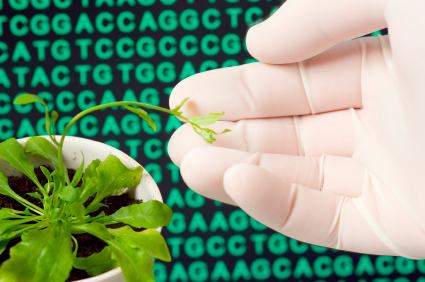Source: The Associated Press, 23rd September 2009
A federal judge overturned government approval of a variety of sugar beet genetically engineered to resist a popular weed killer produced by agricultural giant Monsanto, according to a ruling released Tuesday.
U.S. District Judge Jeffrey White in San Francisco found the U.S. Department of Agriculture's Animal and Plant Health Inspection Service violated environmental law by failing to take a "hard look" at whether "Roundup Ready" sugar beets would eventually share their genes with other crops.
Noting that pollen from genetically altered sugar beets could be blown by the wind long distances to related crops, such as chard and table beets, the judge ordered the agency to produce an environmental impact statement examining the issue.
"The potential elimination of farmers' choice to grow nongenetically engineered crops, or consumers' choice to eat nongenetically engineered food ... has a significant effect on the human environment," White wrote.
To read the full story
ANH Comment
This is a hugely important precedent. Monsanto’s Round Up resistance gene is the single most common trait found in genetically modified (GM) crops, and it’s high time that regulators are forced to think about the implications of giving approval after approval to their chums at Monsanto. The implications of genetic transfer to other crop and non-crop plants is simply horrendous, especially given that the unpredictable nature of genetic modification means that transferring the weedkiller resistance trait may not be the only thing bargained for!
Sugar beets use wind pollination and pollen can travel considerable distances into non-GM fields and the worry is that Monsanto’s patented gene could potentially alter the genetic make-up of the non-GM crops and plants. Once a GM crop has grown in a field, the Percy Schmeiser case has shown us how the patent owner, in Schmeiser’s case, Monsanto, becomes the ‘owner’ of any land and crop on which the GM crop grows. It’s also then near impossible to return that field back to its natural state as getting rid of the weed-killer resistant crop is a mighty task, and if the GM gene is transferred to weeds and creates a ‘super weed’, these will be difficult or even impossible to eradicate. The biotech companies’ dream of growing more and more GM crops could very likely force most farmers to grow GM — and of course most of us to eat GM foods!
Like many others who have been observing the scientific and legal implications of wider cultivation of GM over the years, we are deeply concerned about the very significant risk of transgene flow in the environment. Among the key concerns are:
- unpredictable effects on non-GM crop and non-crop plants
potential effects on microbes in the soil potential impacts on consumers of such plants (humans, animals and microorganisms) - potential development of ‘superweeds’ (if Round Up resistance genes transfer), and
- almost unthinkable negative impacts on organic agriculture, which could be so serious as to make organic farming unviable
These concerns are hardly petty – and it’s refreshing to see a regulator stop the thoughtless green-lighting of GM crops, barely even considering what happens to the overall risk of potentially disastrous gene transfers when the area under GM crop cultivation continues to expand substantially since the first commercial plantings in 1996.
Time will tell what will happen when Monsanto bring their full weight to bear against the Court, should the company appeal.
American citizens who care about the massive growth in GM cultivation should think about writing to Judge White to thank him for his foresight!
Back to Homepage
To Say No to GM campaign page








Comments
your voice counts
There are currently no comments on this post.
Your voice counts
We welcome your comments and are very interested in your point of view, but we ask that you keep them relevant to the article, that they be civil and without commercial links. All comments are moderated prior to being published. We reserve the right to edit or not publish comments that we consider abusive or offensive.
There is extra content here from a third party provider. You will be unable to see this content unless you agree to allow Content Cookies. Cookie Preferences